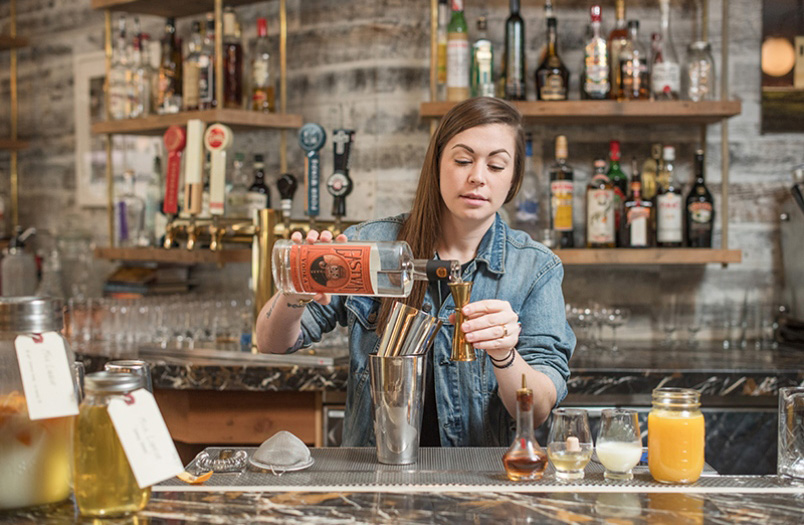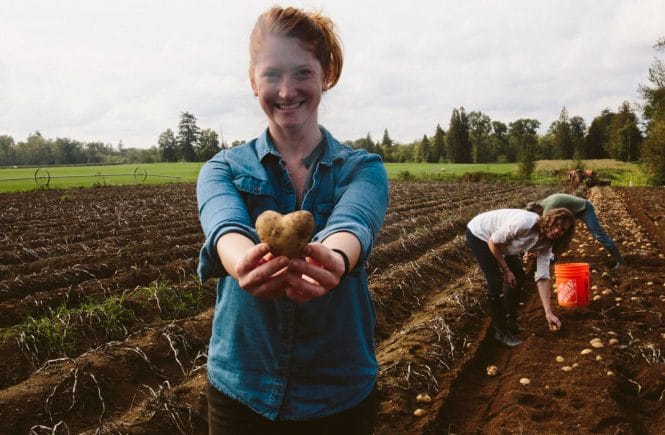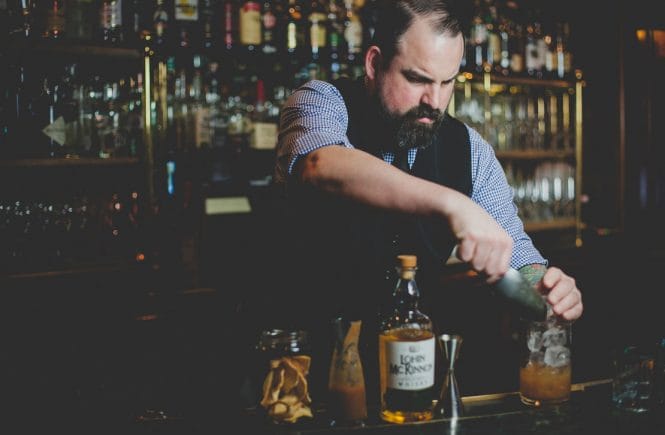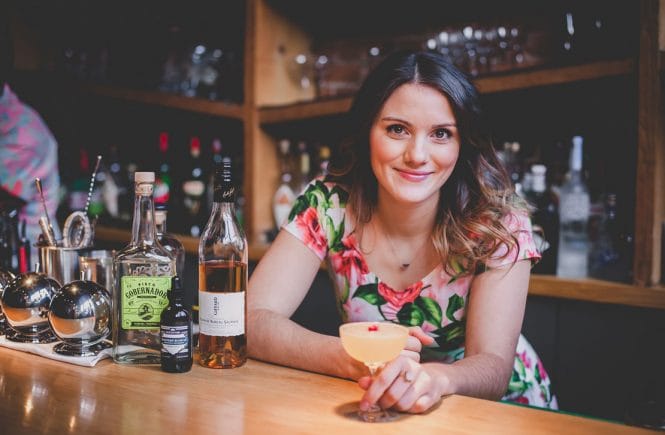Diageo World Class winner Kaitlyn Stewart brings her cool consistency to the global stage

Fred Fung/Royal Dinette photo
If there were any lingering doubts that Vancouver has become a world-class cocktail city, Kaitlyn Stewart has just laid them to rest.
“Honestly, it’s a very humbling title to accept,” Stewart says. “I just wanted to show them who I am as a bartender, and be consistent in putting good drinks out there and treating the judges like they were sitting at my bar at Royal Dinette.”
This August, Stewart will compete in Mexico against the winners from 58 other countries for the international World Class title. If she wins, she’ll be considered the best bartender in the world.
“Kaitlyn will be the third Vancouver bartender in the past four years to represent Canada on the global stage,” Sceney says. “It’s clear now that Vancouver’s cocktail scene is full of energetic, creative, passionate, hospitable bartenders and this is being recognized not just within Canada, but globally.”
The Diageo World Class competition first began in 2009 with a handful of countries. Since then, more than 30,000 bartenders have competed, and new countries have been added, with Canada joining the group in 2013. Impressively, in the years they competed, Sceney placed sixth and Mote placed 12th worldwide, making Canada—especially Vancouver—a serious world contender.
This is not an easy contest to win, or even to enter.
It starts with an online submission of an original cocktail recipe, followed by a Skype interview. Judges then narrow the selection down to 24 bartenders—12 from each coast—who take part in regional competitions showcasing creativity, skill, knowledge and, of course, well made cocktails. A dozen regional winners go on to the national finals, which this year were held in Toronto on May 17 and 18. That winner goes to the world finals.
It is a huge commitment of time, energy and personal pride. Little wonder, then, that Stewart says it was a hard decision to make. “But Lauren Mote gave me some good advice,” says Stewart: “‘One drink can change your life, and if you don’t try, you’ll never know.’”
In Toronto, Stewart faced four difficult challenges, including one where she deconstructed a classic Corpse Reviver No. 2 by making her own gin, Lillet and Cointreau, and another where she created a drink honouring Toronto, called Road to the 6, made with Tim Hortons coffee syrup and garnished with a Drake statuette.
“What I wanted to accomplish was being 100 per cent my authentic self,” she says. “This shows that putting yourself out there and being yourself, nothing beats that.”
And now, she’s starting to prepare for Mexico.
“I’m a visual person, so I like to map things out,” Stewart says. “And I’m lucky that I have the World Class alumni to help me.”
Those alumni can tell her that one thing is for sure: the competition will have a lasting impact.
“World Class really has changed my life,” Sceney says. “It encouraged me to push my own boundaries, both professionally and creatively. I surprised myself in a lot of ways.”
“World Class is an incredible platform for bartenders and professionals in our industry to learn and develop from the world’s best curriculum,” adds Mote. “For a bartender willing to put themselves out there, the potential win is not just a title or an award, it’s belonging to a global community, developing friendships and education with likeminded individuals.”
So, whatever happens in Mexico, the experience has already been a life-altering one. “The entire experience was very unique and very memorable,” Stewart says. “There’s no other competition for bartenders like it.”
—by Joanne Sasvari




